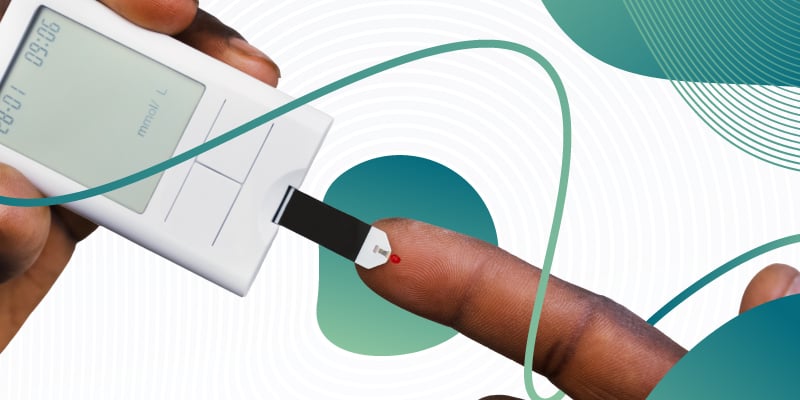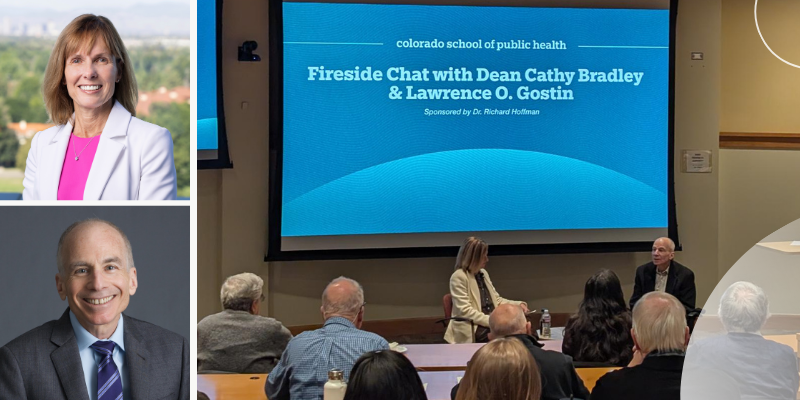With youth mental health reaching crisis levels nationwide, new research from the Colorado School of Public Health points to a practical, cost-effective intervention—routine depression screenings during teens’ regular doctor visits. By identifying symptoms earlier, and as part of a more holistic approach to delivering care, providers can connect young people to treatment sooner and reducing overall financial burdens on health care systems and families.
This latest research was published earlier this month in JAMA Health Forum and the study found that routinely screening adolescents for depression—as recommended by national health—can be a cost-effective strategy, especially when combined with better access to high-quality mental health treatment. The study highlights that annual universal depression screenings, which have been recommended since 2018 for teens ages 12 and older, could offer a better return on investment than screening only when symptoms become apparent. This is particularly true, if healthcare systems and insurers take steps to reduce the costs of mental health services, improve the effectiveness of treatments, and make it easier for families to access care. For example, spending an extra $1,000–$2,000 to improve the quality of depression care could increase a patient’s annual earned family income by $2,000–$3,000. A Midwestern pediatric practice implemented such a strategy and successfully connected families to quality care through increased referrals and treatment.
“Enhancing the early identification and diagnosis of major depression in adolescents is crucial for enabling timely interventions and effectively addressing the youth mental health crisis,” said Tran T. Doan, PhD, MPH, assistant professor of Health Systems, Management, and Policy at the Colorado School of Public Health and lead author of the study.
This study underscores why routine screenings matter in the larger public health picture. Depression affects about one in five teens in the U.S., yet many go undiagnosed or untreated for years. These challenges can negatively impact an individual’s access to health care, will strain the economic stability of families, and places additional pressures on healthcare systems. In 2021, leading pediatric organizations declared a national emergency in children’s mental health, prompting recommendations from the American Academy of Pediatrics (AAP) and the U.S. Preventive Services Task Force (USPSTF) for systemic solutions like routine depression screenings during adolescent well-visits.
By implementing universal depression screenings during adolescent well-visits, healthcare systems can shift from reactive to preventive care—catching symptoms early, offering timely treatment, and avoiding costly hospitalizations and emergency interventions. This proactive approach doesn't just benefit individual teens; it strengthens communities, reduces healthcare burdens, and supports healthier futures. The study also highlights that cost-effectiveness is amplified when screenings are paired with integrated care models that make mental health treatment more accessible and effective.
Universal screenings have drawn some criticism from public health leaders in countries such as the U.K. and Canada because they could lead to overdiagnosis or unnecessary treatment. But, this new study adds to growing evidence that such screenings are feasible and welcomed by families and clinicians alike. Prior research has also shown that early screening improves the identification of depression, timely initiation of care, and a potential reduction in health care costs over time. “These guidelines (on universal adolescent depression screening) help create a culture of safety and normalize that this is a part of care," said Nasuh Malas, MD, MPH, Division Director for Child and Adolescent Psychiatry at the University of Michigan Medical School.
This study further suggests that cost-effectiveness is significantly enhanced when screenings are integrated within integrative care models. By reducing caregiver burden and increasing treatment follow-through, these approaches can improve both outcomes and system efficiency. Even mild depressive symptoms can lead to higher healthcare utilization and costs. Total healthcare costs for adolescents who screened positive during a one-time screening were twice as high as those who screened negative. Routine screening may reduce reliance on costly services (fewer hospitalizations, emergency visits) by facilitating earlier, more affordable treatment.
“This study reinforces that cost-effectiveness doesn’t come from screening alone. Real value lies in how health systems respond—through improved access, higher quality, streamlined models of care, and meeting adolescent patients where they are,” said Davene R. Wright, PhD, associate professor of Population Medicine at the Harvard Medical School.
Co-authors of the study include David W. Hutton and Lisa A. Prosser at the University of Michigan, and Davene R. Wright at Harvard University. Funding support came from the Robert Wood Johnson Foundation’s Health Policy Research Scholars Program and the HRSA Ruth L. Kirschstein NRSA Primary Care Research Training Program at the University of Pittsburgh.
This research underscores the importance of a coordinated, comprehensive approach to adolescent mental health—one that goes beyond screening to include high-value, early interventions such as telemedicine expansion, reduced treatment costs, and more effective delivery of care.






